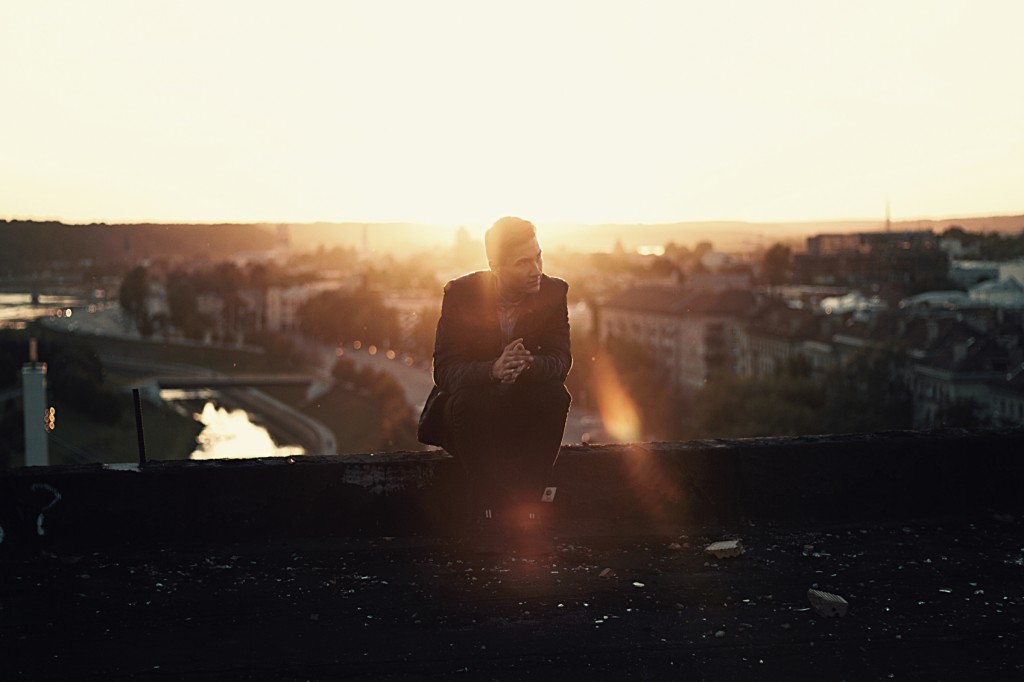On Saturday, the sewer line connected to our apartment building malfunctioned, unleashing a tide of water from the walls, into the bathroom and the rooms which border it.
This isn’t the first time Susie, my wife, and I have dealt with flooding in our homes. My parents’ basement flooded a couple of times in high school and Susie’s house saw a foot of water when she was in sixth grade. Not to mention the night before our wedding when both my parents’ basement and Susie’s house had over a foot of water.
As far as I know, the Lord has not instructed me to build a boat, but I may be missing something. I can’t be sure, really.
Over the last couple of days as we’ve walked around our cement floor in flip flops and tried to overwhelm the smokey stench of our uninsulated neighbors with enough candles to be accused of holding a prayer vigil, I’ve been full of contentment.
Why? How?
Perhaps it’s because we didn’t really lose anything. Maybe it’s because we can still live in our apartment as it’s being fixed. Even so, though, this comes at our busiest season since we’ve been married, we’re having to crawl over stuff in every room of the house, and we’re effectively smoking a few cigs a day thanks to our neighbors.
Contentment is found in Christ, not comfort.
In my Bible reading this week, I’m around the middle of Luke. Yesterday, I was in Luke 12 and I came across a couple of key passages confirmed my contentment amidst the current state of chaos.
When someone in the crowd demands of Jesus,
“Teacher, tell my brother to divid the inheritance with me,” Jesus responds with the parable of the rich fool. After explaining he isn’t in a place to do so, Jesus says, “Take care and be on your guard against all covetousness, for one’s life does not consist in the abundance of his possessions.” Luke 12:15
I know that Jesus is speaking in the context of greed and covetousness here, but I think it’s safe to say the principle remains regardless: our life is more than our stuff. Even though none of our “stuff” was damaged in the flood, our apartment is in shambles, which would be problematic if I placed much value in our apartment.
Later on in Luke 12, a familiar refrain of Jesus’ teaching pops up. My favorite record of this teaching is in the Sermon on the Mount, but I read this one yesterday and was encouraged. Jesus says, following an encouragement against worry,
“Fear not, little flock, for it is your Father’s good pleasure to give you the kingdom. Sell your possessions, and give to the needy. Provide yourselves with moneybags that do not grow old, with a treasure in the heavens that does not fail, where no thief approaches and no moth destroys. For where your treasure is, there will your heart be also” (Lk 12:32-34).
Finding our contentment in something bigger than our stuff is righteous and “good,” right? I mean, to not find contentment in our stuff is a “good” thing if for no other reason than it obeys Jesus. But it goes beyond that for me.
Contentment in Christ is costly.
Finding our contentment in Christ is more than just “good.” It’s practical.
Christians are foolish to find contentment in anything that isn’t eternal. Finding purpose or contentment in this life is like keeping your life savings under your mattress. If your house goes up in flames, so does your life savings. But, if you’re wise enough to keep your life savings in a place they cannot be touched by fire or flood or otherwise, you’re fine no matter what happens.
In the same way, if we find purpose and contentment in our life on earth, and our life on earth falls apart, we’re in trouble. But, if we’re wise enough to store our purpose and our contentment “off-site” in eternity, it survives whatever happens here.
The problem is, we don’t like to do that.
In our sin, we would rather find our contentment in God’s stuff than in God himself.
Why?
It’s quite simple. God’s stuff doesn’t require much of us. Creation is easier to serve than the Creator.
We forget 1 Timothy 6:6, which tells us that godliness and contentment is great gain. We, as Roman 1 tells us, settle for the created instead of the Creator. We do this because we’re lazy, sinful, and cheap.
It’s so much easier to serve our bank accounts than it is the One who already paid the debt.
Christ pays our eternal debt and asks for our lives; our bank account pays our debts and asks for nothing.
We sow our seed of “time” into our TVs and reap entertainment instantly. Meanwhile, we sow our seed of “time” into the church and impatiently wait for a harvest that may take years.
Godliness and contentment are great gain, but anything great that’s worth gaining costs us something.
Christ has paid the debt of our sin, but he demands our lives.
I often think of the righteousness we find in Christ as a giant parka. We live in an Arctic tundra devoid of life that will freeze us, apart from warmth. Christ’s righteousness covers us like a parka that’s 10 sizes too big. Christ pays for the parka and provides the parka.
All he asks of us is to grow into the parka.
Through circumstances like floods, fires, and famines, the muscles of faith and tendons of trust are moved and built up so that we might grow into the righteousness Christ has already purchased on our behalf.
There’s not much use shedding tears over a flood. We’ve already had too much water.
Contentment is rooted in Christ and sanctification is found in circumstances.
This post was originally published on millennialevangelical.com




















